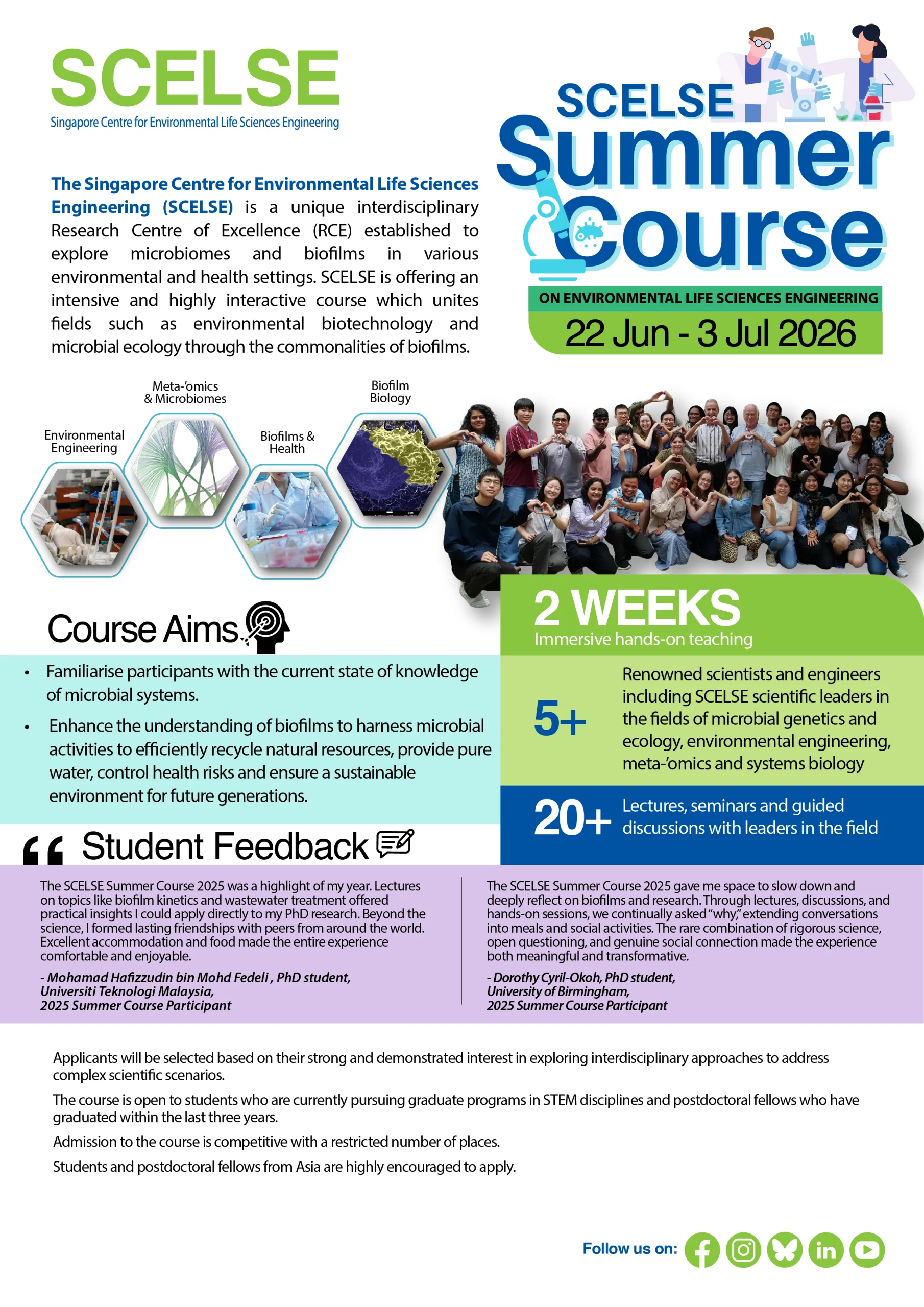About the Course
Our understanding of the microbial world has undergone multiple paradigm shifts over the years. Microbes are no longer viewed as free living, single-celled organisms, but dynamically structured communities of multiple species which are often embedded in a polymeric matrix and grow on interfaces. These aggregates are commonly referred to as biofilms. Their communal activity is substantially different from the activities of individual members or variants. Many microbes may have unknown physiological requirements that make their cultivation difficult. To understand the activity of biofilms and their member species we must, therefore, resolve to study the community using a complex system approach. Recent discoveries enable us to revisit applications of microbes in engineering processes, human health and environmental contexts, made possible through exciting methodological developments in life sciences, including those of meta-’omics, systems biology, high resolution imaging, nanotechnology, and materials sciences.
The Summer Course brings together expert scientists and engineers including SCELSE scientific leaders. Participants will interact with these experienced mentors to learn about and harness the biology of microbial communities and biofilms in environmental, health and industrial applications. Learning outcomes include understanding biofilm and microbiome-related mechanisms and processes using quantitative approaches. This knowledge will be used to help design and interpret experiments that can yield information useful in developing new technologies or solving problems in natural and engineered environments. The course brings together fields as varied as (bio-)engineering, metagenomics, public health, and microbial ecology through the commonalities of biofilms. Notably, the course format provides ample opportunities for participants to interact closely with instructors in small groups and informal settings.
Application Process
Applicants will be selected based on their strong and demonstrated interest in exploring interdisciplinary approaches to address complex scientific scenarios.
Kindly ensure that you have the following documents before filling in the application form:
- Curriculum vitae bearing your most recent passport-sized photograph
- A scanned copy of your passport
- A scanned copy of your TOEFL results or other documentary evidence of English language proficiency (for applicants who are based at universities where English is not the medium of instruction)
- A scanned copy of your educational certificates and transcripts or other relevant documents
- All documents must bear your name
The application form must be filled in English and the supporting documents, if not in English, must be accompanied by copies of the English translation of the documents.
The application form and supporting documents should be sent to SCELSE-SummerCourse@ntu.edu.sg before the deadline of 21 February, 2026.
Successful applicants will be notified by email on or before 30 April 2026.

